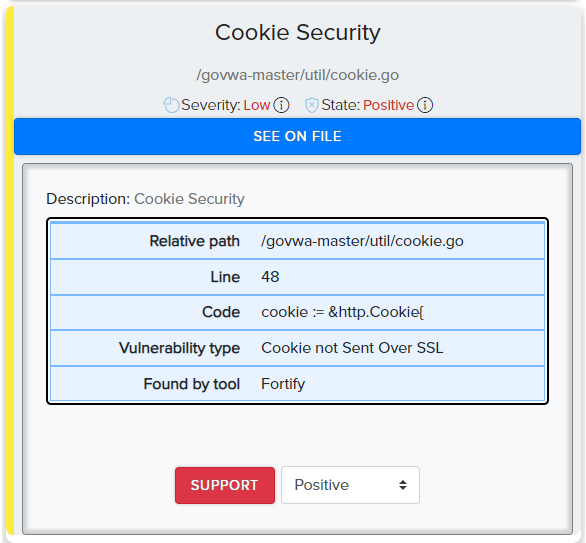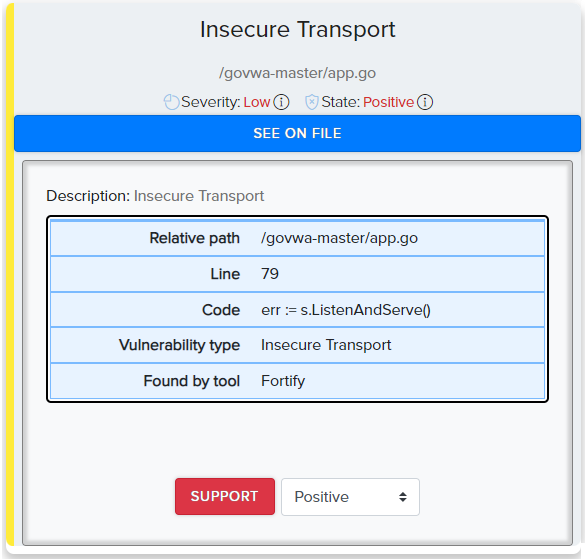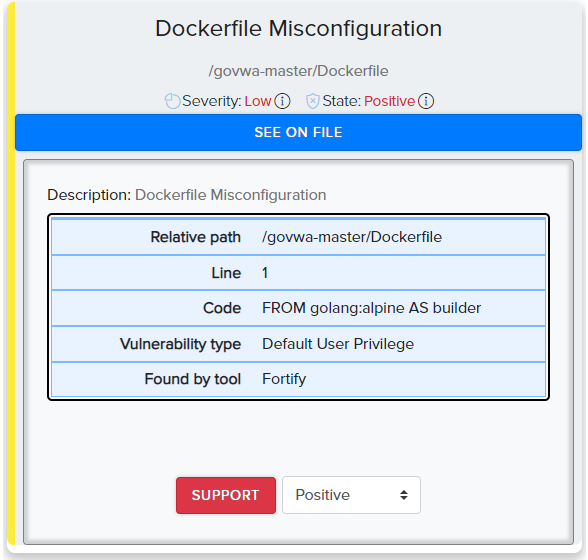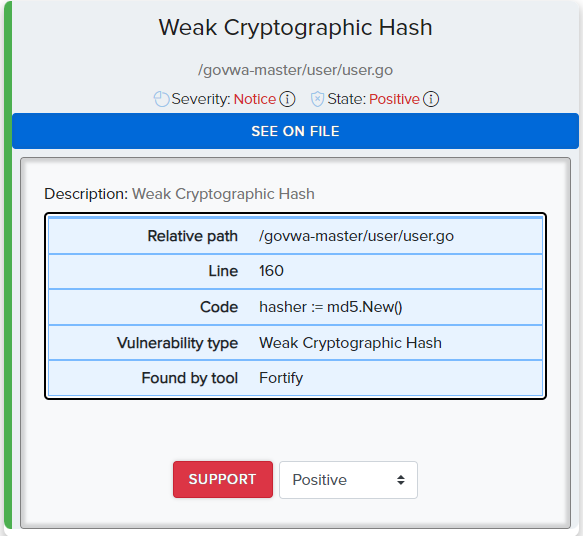¶ Fortify
https://github.com/laravel/fortify
Fortify is a frontend agnostic authentication backend implementation for Laravel. Fortify registers the routes and controllers needed to implement all of Laravel's authentication features, including login, registration, password reset, email verification, and more.
¶ Findings examples
¶ Cookie Security
A cookie is created without the Secure flag set to true.
Modern web browsers support a Secure flag for each cookie. If the flag is set, the browser will only send the cookie over HTTPS. Sending cookies over an unencrypted channel can expose them to network sniffing attacks, so the secure flag helps keep a cookie's value confidential. This is especially important if the cookie contains private data or carries a session identifier.

¶ Insecure transport
The application configuration should ensure that SSL is used for all access controlled pages.
If an application uses SSL to guarantee confidential communication with client browsers, the application configuration should make it impossible to view any access controlled page without SSL. However, it is not an uncommon problem that the configuration of the application fails to enforce the use of SSL on pages that contain sensitive data.

¶ Default User Privileges
The Docker containers by default run with the root privilege and so does the application that runs inside the container. This is another major concern from the security perspective because hackers can gain root access to the Docker host by hacking the application running inside the container.

¶ Weak Cryptographic
Methods that generate cryptographic hashes, which are passed a salt, should not be called with a tainted salt argument.
Weak Cryptographic Hash: User-Controlled Salt issues occur when:
-
Data enters a program through an untrusted source.
-
The user-controlled data is included within the salt, or used
